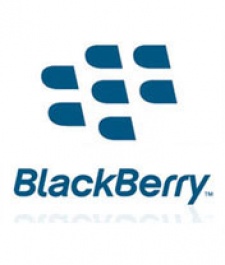There's no question RIM has done an excellent job over the past couple of years, adding a large, younger consumer audience to its existing core business operations.
It sold a record 12.1 million devices in the past quarter, and has just unveiled what appears to be a very impressive tablet in the shape of its PlayBook device.
Offering several improvements over the Apple iPad, such as two cameras, more memory, support for Flash 10.1 browser and multitasking, it's sure to be a success, at least with the business community.
Additionally RIM now has over 50 million BlackBerry subscribers globally, with the company maintaining a strong presence in North America - despite competition from Apple and Google - as well as in Latin and South America, Europe and emerging countries such as India.
Building the future one API at a time
The announcements from its developer conference also demonstrate how it is extending an already very solid technical platform.
The BlackBerry Advertising Service will enable developers to hook up to a variety of ad networks including Amobee, Jumptap, Lat49, Millennial Media and Mojiva, while Medialets will handle rich media content to provide an iAd style service.
Linked into this will be improved analytics, both in terms of advertising, and how apps and games are used.
The BlackBerry App World storefront gets additional features with in-app purchases enabling subscriptions, pay per play, and content unlocking. This links into more general billing options ranging from credit card and PayPal to operator billing with 40 providers via the Bango billing system.
Finally, the BlackBerry Messaging services used by 28 million subscribers is being beefed up with an official social platform, including features such as in-game chat, invitations to play, content sharing and multiplayer options.
All systems stalled
In many ways then, BlackBerry would now seem to offer developers the most fully featured and flexible business opportunity. Certainly it should be the best opportunity after Apple and be giving Nokia a run for its money.
Yet, despite the promise, BlackBerry remains a hamstrung by its lack of support for native games, with the vast majority of gaming content on BlackBerry App World consisting of Java games from the likes of Gameloft and EA Mobile that have been reformated for the devices' odd screen aspect ratios.
Even the most high profile native game, EA Mobile's Need for Speed Undercover - released for the Storm II handset in late 2009 - was graphically a bit embarrassing compared to high end content on other smartphones.
Web isn't the way
And it doesn't appear that RIM is taking the situation too seriously either.
Its announcement of new development tools such as WebWorks for new devices focuses on enterprise solutions and web technology such as HTML5 and JavaScript; hardly ideal for games.
Indeed, this approach seems have been extended to the PlayBook tablet, which uses its own weird QNX operating system and while supporting games developed in C/C++, seems to be geared towards Java apps, Flash and cross platform content from the new BlackBerry 6 OS.
It's a shame, not only because Apple has proved that tablets are ideal for a different type of gaming, but more widely, because, in their own ways, Apple, Nokia, Google, Microsoft and even Samsung, are demonstrating that if you give developers the right tools, they will create fantastic mobile entertainment experiences as well as generating enthusiasm and loyalty amongst users.
Use of the epithet CrackBerry may have died out, but surely this is the opportunity for RIM to provide the services so that BlackBerry users - and gamers - can come up with a more positive emotive for their devices.
Opinion: Why despite 50 million subscribers, PlayBook, and a great platform, BlackBerry still isn't an opportunity for games
Business legacy and web focus curbs the real fun






















